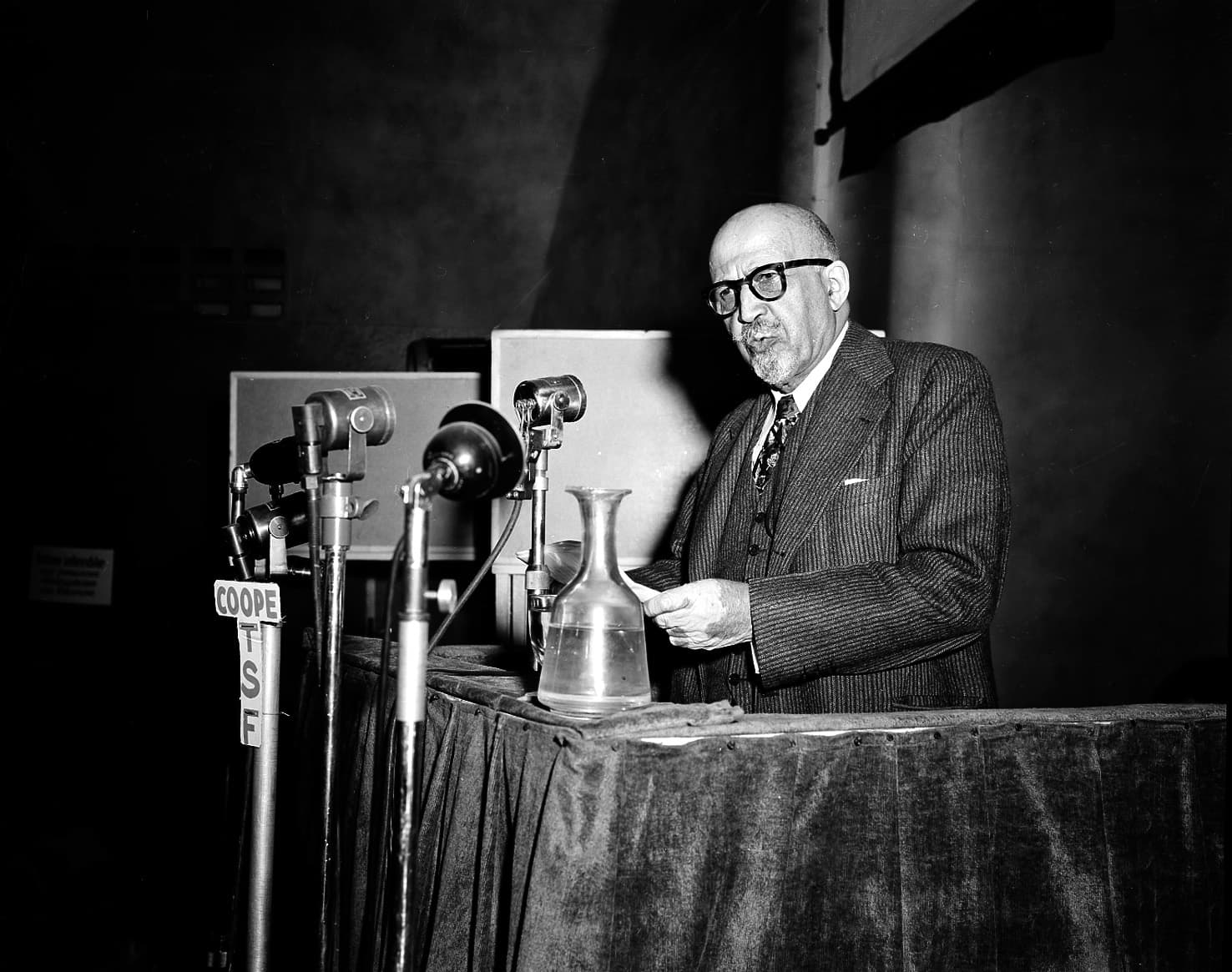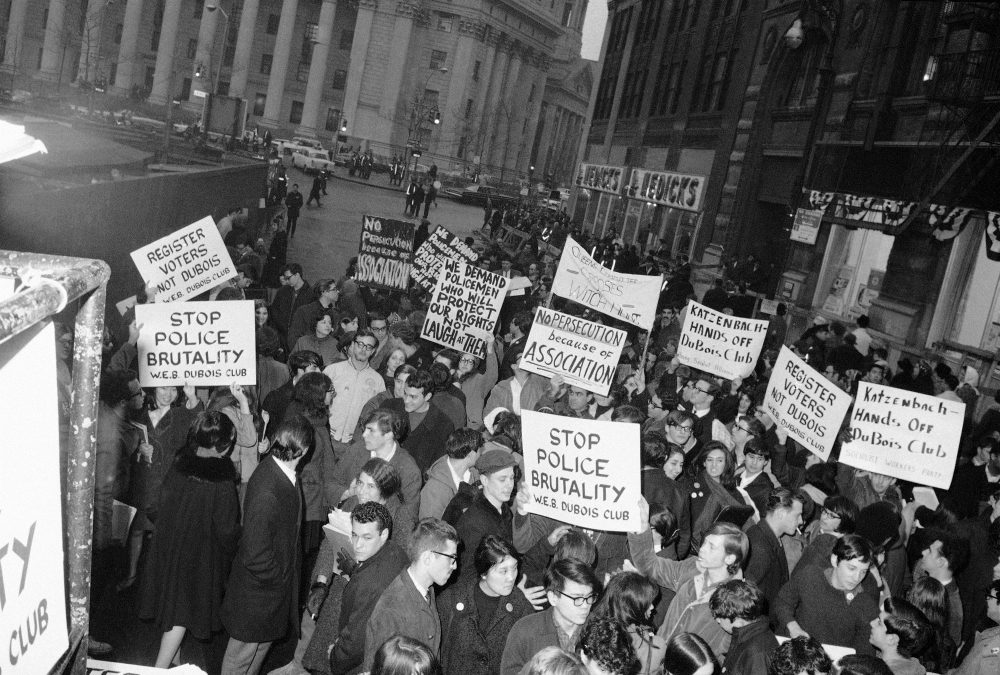Advertisement
In W. E. B. Du Bois, Finding An Identity Politics We Can All Believe In

COMMENTARY
Since the rise of the New Left in the 1960s, whenever Democrats take a licking in presidential elections, critics inside and outside the party point to identity politics (sometimes multiculturalism) as the scapegoat. Instead of rallying around issues that the whole nation can agree on, the argument goes, women, African-Americans, the LGBTQ community, Muslims, and so on, try to go it alone.
Split into various fiefdoms, the Left is said to be at once parochial and individualistic, tribal and cosmopolitan, disdainful of the average Joe, and, above all, unpatriotic. As a result, the Left cannot generate electoral majorities needed to consistently win presidential elections and advance its agenda. In short, the Left should return to basics, focus on economic injustice rather than cultural grievances, and rebuild the New Deal coalition of the good old days.
There are several problems with the argument that economics rather than culture wins elections, not least the fact that Donald Trump based his campaign on an appeal to a white nativist majority. Nor were the days of the vaunted New Deal coalition culturally neutral or unambiguously good for women and African-Americans. Scratch hard, and the New Deal coalition looks a lot like the Trump cabinet — a club of mostly rich, white men.
Citizens of the United States are not simply patriots or women or African-Americans or Catholics or Muslims or queer... Identity is not singular or static, but plural, multivalent, overlapping and often contradictory.
Besides missing the racial and cultural character of Trump’s electoral-college majority, the critique of identity politics perpetuates a misconception of how identity works. Citizens of the United States are not simply patriots or women or African-Americans or Catholics or Muslims or queer, and so on. Identity is not singular or static, but plural, multivalent, overlapping and often contradictory. We are many things at once, with one (or more) of our “identities” rising to the fore, depending on what the issue is.
One person who understood this better than most was the African-American civil rights leader W. E. B. Du Bois, a man forced continually to defend his patriotism even as he struggled to make the country live up to its ideals. In the wake of a bruising election, and in the one month of the year devoted to black history, it seems an opportune time to pay a call on the sage of Great Barrington, Massachusetts.
Du Bois’s most read book is the set of essays collected in "The Souls of Black Folk" (1903), which includes this clarion call for cosmopolitanism: “I sit with Shakespeare, and he winces not. Across the color line I move arm and arm with Balzac and Dumas, where smiling men and welcoming women glide in gilded halls. From out of the caves of evening that swing between the strong-limbed Earth and the tracery of stars, I summon Aristotle and Aurelius and what soul I will, and they come all graciously with no scorn nor condescension.”

Less known is Du Bois’s defense of racial distinctiveness in the essay, “The Conservation of Races,” published five years before "Souls," which simultaneously demolished the pseudo-scientific conception of race ascendant at the time, while insisting that African-Americans had a unique contribution to make to the nation’s cultural repository.
Then there was the trouble Du Bois got into during World War I, when this uncompromising defender of African-American civil rights urged black Americans to “forget our special grievances and close ranks shoulder to shoulder with our fellow white citizens and the allied nations fighting for democracy.” Critics and even former friends castigated Du Bois for his accommodation.
In real life, as Du Bois’s example suggests, individuals struggle to maintain dynamic equilibrium between private and public, local and national, national and international affiliations.
Life is full of contradictions. In real life, as Du Bois’s example suggests, individuals struggle to maintain dynamic equilibrium between private and public, local and national, national and international affiliations. Which is not to say that doing so is easy or pretty or perhaps even possible. But it is nevertheless what most of us attempt to do.
When defenseless black men are shot down on our streets, it is not un-patriotic for African-Americans (and sympathetic friends) to howl in protest and drill down on this issue as if it were the only show in town. When an alleged serial sexual predator is elevated to the highest office in the land, it is not un-patriotic for a mother to grab her daughter and march on Washington for equal pay, control over her body, and a workplace free from sexual harassment. When a young woman in a headscarf is bullied and spat on and told to go home by a group of angry young men, it is not un-patriotic for Muslims (and their allies) to insist that we are all Muslims now.
Indeed, it is the essence of patriotism to do so.
If U.S. history demonstrates anything, it is that poverty and sexual, racial, ethnic, etc., oppression know no sexual or ethno-racial boundaries. As Du Bois insisted, the common denominator in my fighting for my emancipation and justice and your fighting for yours is emancipation and justice itself. Surely, that’s an identity politics we can all believe in.
